US Commemorates 400 Years Since The Birth Of Slavery In August 1619
In August 1619, a British ship landed on the shores of Virginia with some 20 African captives aboard. Four hundred years later, the date is being commemorated as the beginning of the age of slavery in North America.
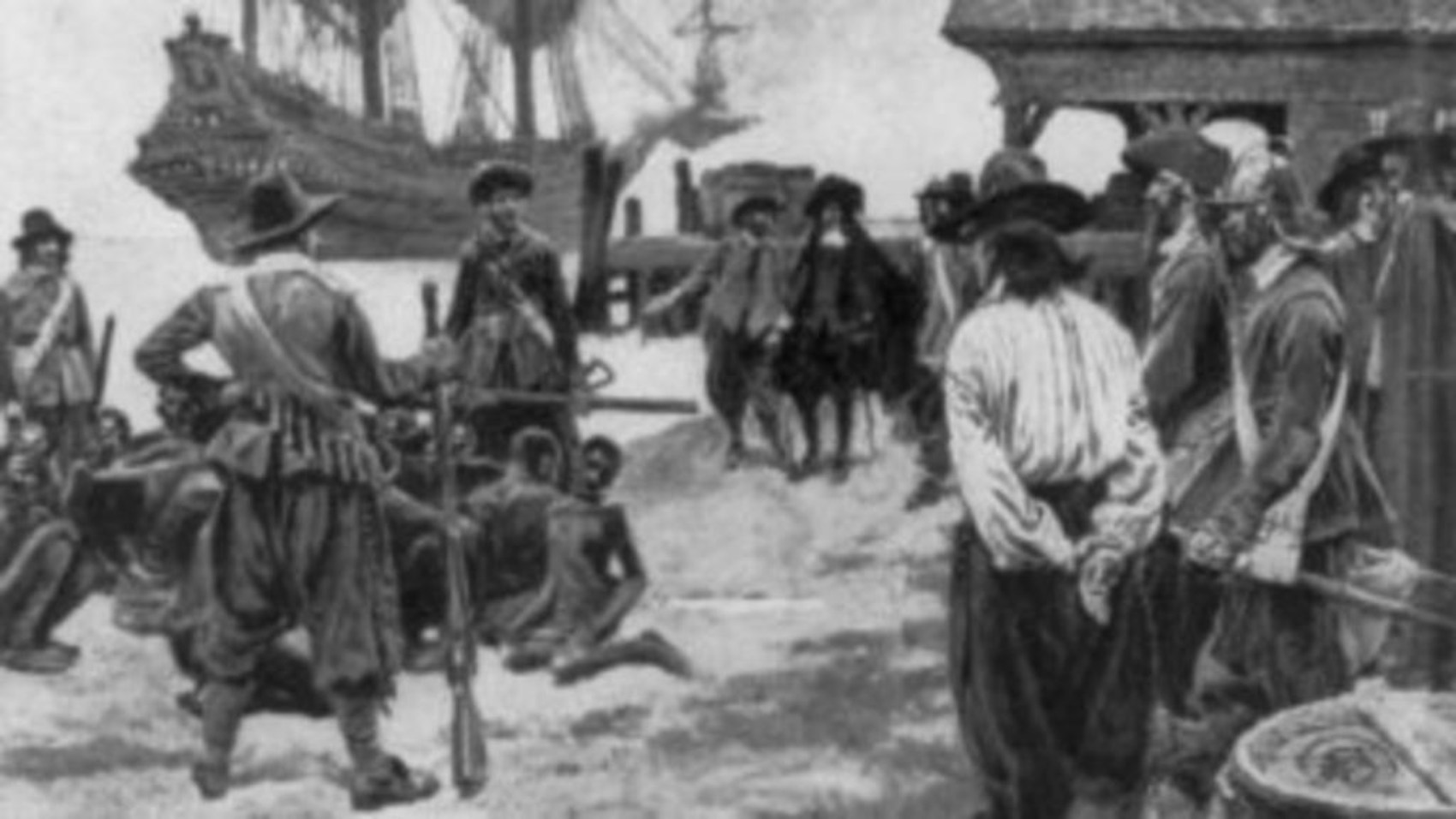
This illustration published in Harper's Monthly Magazine in 1901 depicts the arrival of the "White Lion" in Hampton in 1619. Photo: Library of Congress
In August 1619, a British ship landed on the shores of Virginia with some 20 African captives aboard. Four hundred years later, the date is being commemorated as the beginning of the age of slavery in North America.
Just along the boardwalk in Virginia's seaside town of Hampton – once known as Point Comfort – stands a stark plaque. It reads: “The first documented Africans in Virginia arrived here in Aug. 1619 on the White Lion, an English privateer based in the Netherlands.”
Four hundred years ago, the ship dropped anchor in what was then a British colony. John Rolfe, the plantation owner and official overseeing the colony (who is perhaps best remembered for marrying Pocahontas), noted that it “brought not anything but 20 and odd Negroes”.
Captives from Angola
As the Hampton History Museum recounts, the captives came from the kingdom of Ndongo, in present-day Angola. They were reportedly captured there by Portuguese colonists then driven to the port of Luanda, where they were brought on board the slave ship São João Baptista.
Altogether, the boat carried some 350 enslaved people. As it sailed toward Veracruz, in present-day Mexico, the ship was intercepted by the White Lion. The British crew robbed part of the Portuguese cargo, including a few dozen African captives – among those who had survived the brutal journey thus far. A few days later, it was at Point Comfort that the British vessel finally landed, in the hopes of trading the enslaved Africans for food and supplies.
The exact date of the ship’s landing is not known, but historians have fixed August 1619 as the moment that slavery began in what would become the United States. In the rest of the Americas, however, a forced labour regime was already well under way.
“Prior to the slave trade, indigenous people were enslaved in the Spanish and Portuguese colonies,” says Michael Thomas, assistant professor of philosophy at Susquehanna University in Pennsylvania. “Enslaved people from Africa were brought over to reinforce their numbers.”
Spanish conquistadors had already brought African slaves to the Caribbean island of Hispaniola (today shared between Haiti and the Dominican Republic) as early as 1502. In 1526, a Spanish expedition also brought African captives to present-day South Carolina, almost a century before the date of the Virginia landing now considered the birth of slavery on the continent. However, the settlement there was abandoned the following year after the Africans rebelled.
A plaque in memory of William Tucker's family in a Hampton cemetery refers to them as the area’s "first black family". His parents arrived in Virginia on the White Lion in 1619; William was the first African American born in what would become the United States.
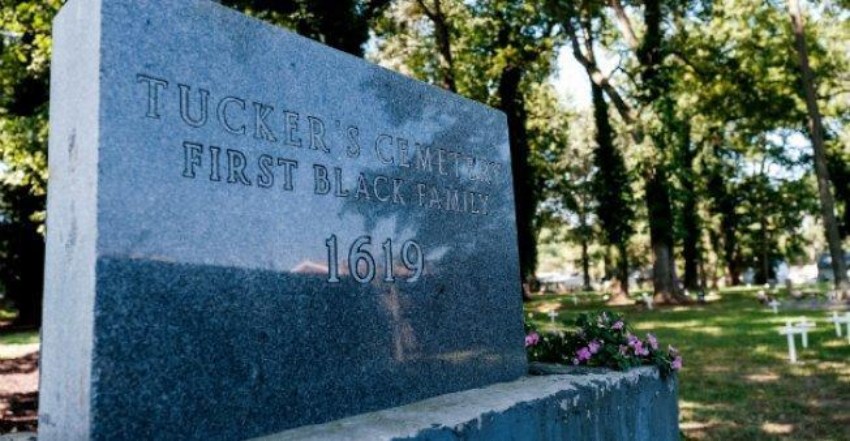
A plaque in memory of William Tucker's family in a Hampton cemetery refers to them as the area’s "first black family". His parents arrived in Virginia on the White Lion in 1619; William was the first African American born in what would become the United States. Photo: Michael McCoy | Reuters
Changing perceptions of slavery
For Thomas, whether 1619 marked the precise beginning of North American slavery is beside the point. What matters is that the date “helps us mark how the history of slavery in the US is recognised”, he says. It offers a starting point for reckoning with this history and the many misconceptions that come with it.
“When it comes to the history of slavery, we have the image of poor people broken in boats who were dehumanised and without culture,” Thomas says. “However, the people shipped over in boats from African nations and the Caribbean had lives before working as slaves on plantations … they brought skills and knowledge that made them valuable labourers.”
“It’s not only important that we remember these dates,” he continues. “It’s essential that we pay attention to how we remember these dates, because they tell us valuable things about the nation and the people in it that we often obscure.”
As an African American himself, Thomas says he doesn’t remember hearing much about 1619 when he was growing up, whether at home or at school. “We did commemorate Juneteenth, which commemorated the abolition of slavery on June 19th 1865,” he recalls.
‘Drawing energy from the past’
Throughout the month of August a series of events has been scheduled to mark the anniversary, among them ceremonies, conferences, concerts, the release of butterflies and a ringing of bells. On July 30, President Donald Trump also alluded to the anniversary in a visit to Jamestown, about 50 kilometres from the site of the 1619 landing. Trump, who was in Jamestown to mark a separate 400th anniversary – that of the future United States’ first legislative assembly – made a reference to “the beginning of a barbaric trade in human lives”.
The US president has not announced plans to return to the area for further commemorations in the coming days – and some of those behind the events would prefer he keep his distance. As Gaylene Kanoyton, the president of the Hampton branch of the National Association for the Advancement of Colored People (NAACP), told the Guardian: “He’s not welcome because of everything that we’re commemorating, the arrival of slavery. He’s for white supremacy, he’s for nationalism, he’s for everything that we are against.”
Two years ago, it was in the same state of Virginia that the United States witnessed one of the most significant acts of white supremacist violence under Trump’s presidency. On August 12, 2017, during a far-right rally in the city of Charlottesville, an avowed neo-Nazi intentionally rammed his car into a crowd of counter-protesters, killing 32-year-old Heather Heyer. Trump later sparked widespread outrage when he stated that there was “blame on both sides” for the day’s violence.
Thomas says the return of such open racist violence in the United States is one of the reasons that it’s so important to understand how the history of slavery shaped the country’s history.
“I do know of many African Americans who are returning this year to Africa to commemorate the date and cultivate their sense of connection with Africa,” he says. “I can’t say whether or not it is increasing now, but my guess is yes given the state of things in the US. When visual signs of racism and racial violence increase, people draw energy from the past to lift themselves up and fight back.”
-
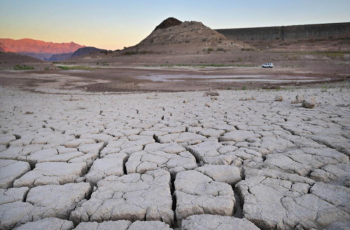
Climate impacts set to cut 2050 global GDP by nearly a fifth
2024-04-18 -
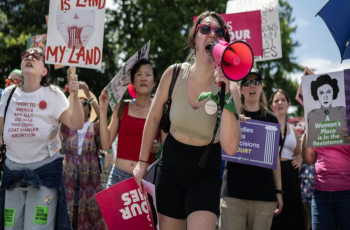
US sterilizations spiked after national right to abortion overturned: study
2024-04-13 -
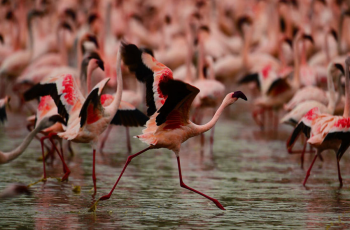
Future of Africa's flamingos threatened by rising lakes: study
2024-04-13 -
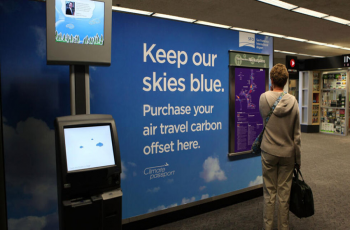
Corporate climate pledge weakened by carbon offsets move
2024-04-11 -
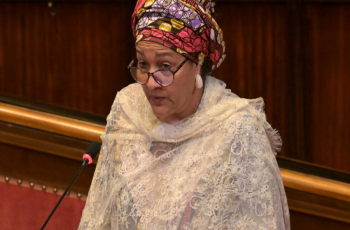
Humanity lost 'moral compass' on Gaza: top UN official
2024-04-10 -

No.1 Scheffler says patience and trust are secrets to success
2024-04-10 -
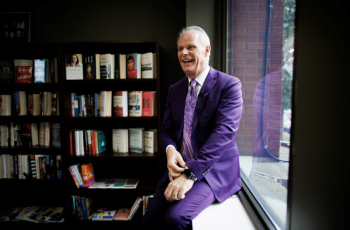
From homeless addict to city chief: the unusual journey of Canadian mayor
2024-04-10 -

Slovenian spiderwoman Garnbret eyes more Olympic climbing gold
2024-04-07 -
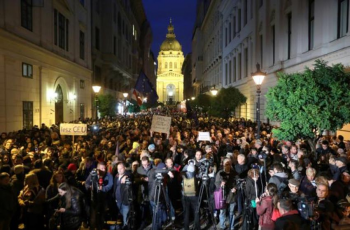
Academic freedom declining globally, index finds
2024-04-04 -
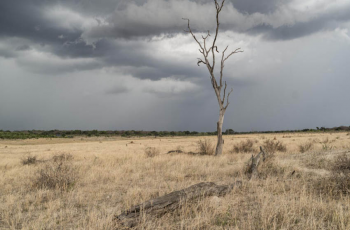
Zimbabwe declares El Nino drought a national disaster
2024-04-03
